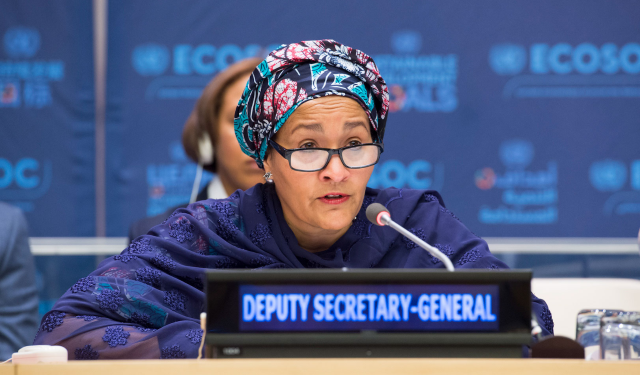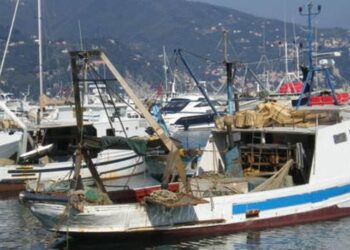Sustainable development in Africa: Amina Mohammed calls for mobilisation of energies – Amina J. Mohammed was attending the ninth session of the Africa Regional Forum on Sustainable Development, which runs in Niamey, Niger, until yesterday, 2 March. The forum is jointly organised by the United Nations Economic Commission for Africa (ECA) and the Government of Niger, in collaboration with the African Union Commission, the African Development Bank and other parts of the UN system.
Cascading crises
Addressing the forum, the Deputy Secretary-General stressed that the world is experiencing a cascade of crises that are undermining hard-won development gains and threatening current and future generations. According to her, Africa is fully impacted by the socio-economic fallout of the COVID-19, the climate crisis and the war in Ukraine, to which it has contributed the least.
“We are meeting in the Sahel where the climate emergency is exacerbating growing insecurity, the spread of terrorism and a dire humanitarian situation. We are currently heading for 2.7 degrees Celsius of warming, which could mean a loss of almost 15% of GDP in the Sahel region,” she said.
“There is an unprecedented cost of living crisis that has pushed some 23 million people in Africa into extreme poverty by 2021. At the halfway point of the Sustainable Development Goals and Agenda 2063, we are far from where we need to be. But this is not the time to despair. On the contrary, this is a time for solidarity, leadership and commitment to the actions we must take to implement these agendas,” she added.
Including youth
According to the Deputy Secretary-General, “with African-led solutions, born on African soil, we can change course and meet the challenge of Agenda 2063 and the Sustainable Development Goals (SDGs).
She noted that intra-African trade is growing in the region and that the continental free trade agreement has the potential to lift 30 million people out of extreme poverty.
While African heads of state also endorsed an action plan on sustainable industrialisation and economic diversification, there is a need to ensure that “emerging green and digital economies better serve Africa’s people and natural environment”, with the key to implementation being “the inclusion of our young population”, she said.
The Deputy Secretary-General considered the transformation of Africa’s energy sector to be crucial, citing the development of a sustainable value chain for minerals used in electric vehicle batteries by the Economic Commission for Africa and other development partners as a “promising example”.
She also cited the Congo Basin Carbon Credit Registry, the Great Green Wall project, which “has the potential to provide both climate resilience and sustainable livelihoods for vulnerable populations, so that they have an alternative to conflict in the Sahel”, and the proposed ‘Great Blue Wall’ for the effective management of the continent’s marine and freshwater ecosystems, which is important in the context of rising crime in the Gulf of Guinea.
For the UN’s number two, the Sustainable Development Goals Summit in September will be an important moment with the objectives of reinvigorating national pledges to the SDGs; making tangible progress on financing the SDGs; and reviving the concept of genuine partnership.
Sustainable development in Africa: Amina Mohammed calls for mobilisation of energies








